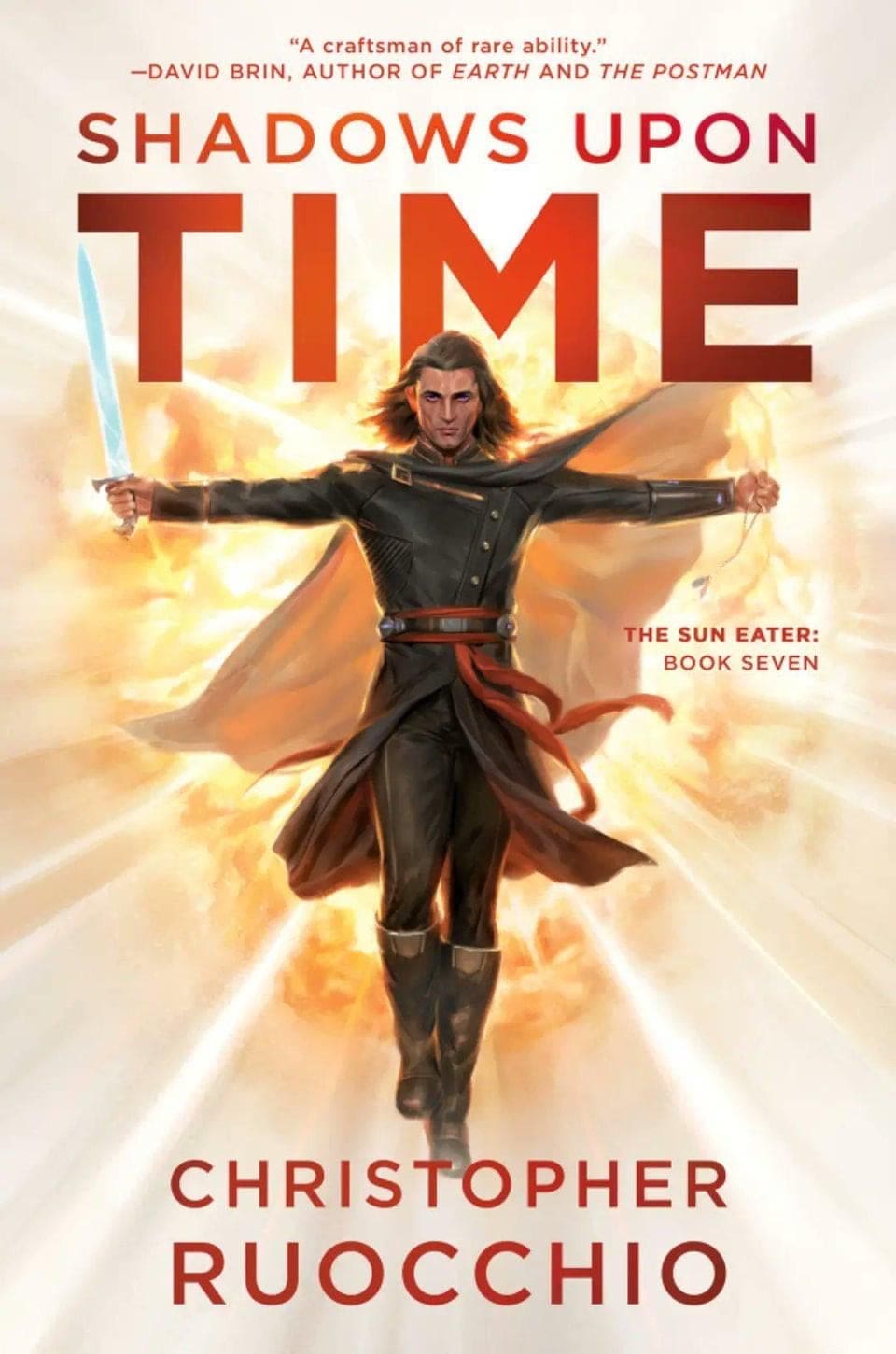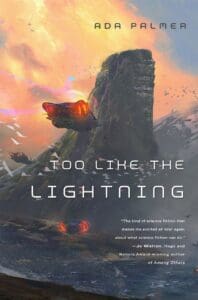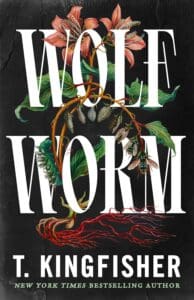
Synopsis
The seventh and final novel of the galaxy-spanning series merges the best of space opera and epic fantasy, as Hadrian Marlowe at last lights the greatest fire humanity has ever seen.
The trumpet sounds.
The end has come at last. After his victory at Vorgossos, Hadrian Marlowe finds himself a fugitive, on the run not only from the Extrasolarians, but from his own people, the Sollan Empire he betrayed-and who betrayed him. Hidden safely beyond the borders of human space, Hadrian awaits the arrival of the one ally he has left: the Jaddian Prince Kaim-Olorin du Otranto.
What’s more, the inhuman Cielcin have vanished, unseen for more than one hundred years. The armies of men have grown complacent, but Hadrian knows the truth: the Cielcin are gathering their strength, preparing for their final assault against the heart of all mankind.
Only Hadrian possesses the power to stem the tide: an ancient war machine, forged by the daimon machines at the dawn of time. The mighty Demiurge. With it, Hadrian must face not just the Cielcin horde, but their Prophet-King, and the dark gods it serves-the very gods who shaped the universe itself.
Review
You ever finish a book and stare at the wall?
Finish a series that you already want to reread?
Hi, yeah, it’s this.
No spoilers for entire series:
We get to see Hadrian come-of-age, go through a quarter life crisis, middle life, rebirth, and everything in between.
The series tackles existential questions in a way that doesn’t feel pushy or ultimate. Life, death, prejudice, religion, expectations….
I felt like I not only got a person speaking to me out of these books, I learnt things about myself.
“It isn’t right that he should leave us to them like this. If the Quiet really is so powerful, he should destroy them himself. Why these games?”
I had no straight answer. Only the insight I had gleaned beside the cradle of a god in that time still yet to be. I looked at her—my daughter—in whom dwelt all my hope and heart. “Because they’re his children, too,” I said, and looked at Ramanthanu. “The Cielcin . . . and the Watchers. I think—I have to think—that it’s better this way. Better that we fight . . . because if he ended it. Ended it now, they would be lost . . . and us along with them. But if the battle continues, if even one of them changes side. Is that not a victory? Isn’t ending everything now the ultimate defeat? Would you kill yourself from despair?”
What stands out to me is Ruocchio’s masterful writing. Hadrian’s internal voice is so poignant and reflective. It is deeply unique and philosophising.
Ruocchio switches deftly from first pov with Hadrian as the focus to incorporate other people’s recall in this book. He masterfully interweaves different character voices each demonstrating a separate writing style ranging from human to alien to machine.
I don’t know many authors who can do this. You will immediately be in their head, feel their presence, know their sentiments, emotions, culture.
This finale:
So, without spoilers, this finale is epic. You will see returning characters. There are full-circle moments that will have you weeping in joy and grief. The chapter titles are spectacular with tie-ins to previous book titles.
We get a very satisfying ending. More answers about the Chantry, more clues about the far-past and the Empire’s role and control.
How could I argue my innocence, when my guilt had been decided so long ago? When my guilt was the variable the algebra of empire had been constructed to resolve?
P.S. Just a bit from the author’s note:
The world of The Sun Eater will return. I don’t know when, I don’t know how. But this is not the last we’ve seen of this far future. But for the moment, some new adventure begins.






Leave a Reply